
Japanese architect Riken Yamamoto has been awarded the 2024 Pritzker Prize.
Born in 1945, the architect and social advocate has built a career that establishes kinship between public and private realms, in pursuit of harmonious societies that overcome diverse identities, economies, politics, infrastructures, and housing systems.
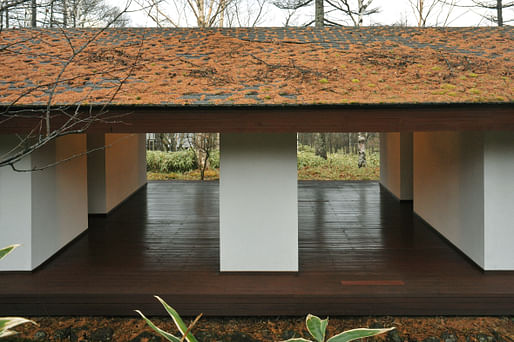
“For me, to recognize space, is to recognize an entire community,” Yamamoto notes. “The current architectural approach emphasizes privacy, negating the necessity of societal relationships. However, we can still honor the freedom of each individual while living together in architectural space as a republic, fostering harmony across cultures and phases of life.”
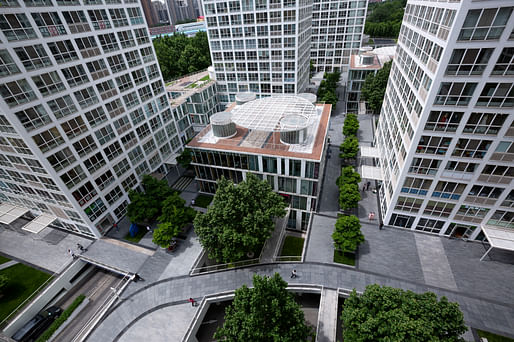
Yamamoto was chosen by the Pritzker jury for his championing of a profession that creates awareness in the community, "questioning the discipline of architecture to calibrate each individual architectural response, and above all for reminding us that in architecture, as in democracy, spaces must be created by the resolve of the people."
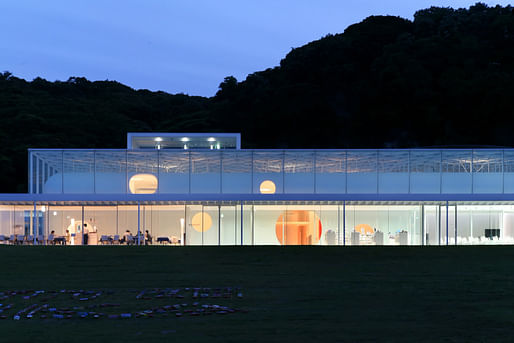
"By the strong, consistent quality of his buildings, he aims to dignify, enhance and enrich the life of individuals—from children to elders—and their social connections," said the jury citation. "And he does this through a self-explanatory yet modest and pertinent architecture, with structural honesty and precise scaling, with careful attention to the landscape of the surroundings."
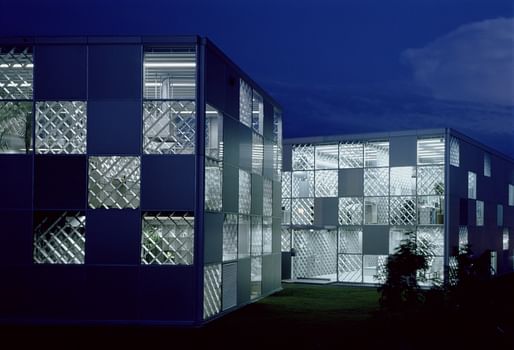
"His architecture clearly expresses his beliefs through the modular structure and the simplicity of its form," the jury added. "Yet, it does not dictate activities, rather it enables people to shape their own lives within his buildings with elegance, normality, poetry and joy."
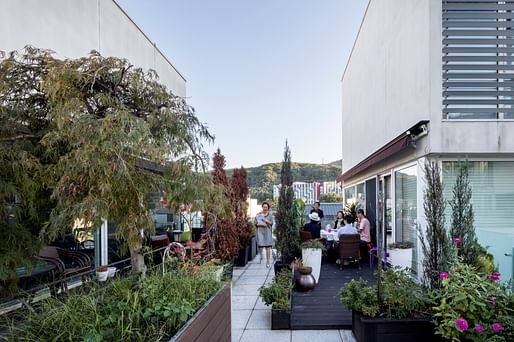
In particular, Yamamoto's larger housing projects are shaped to embody relational elements, designed to ensure that residents can live alone without living in isolation. Exemplifying this approach is Seongnam's Pangyo Housing, a complex of nine low-rise housing blocks designed with "nonprescriptive transparent ground floor volumes that catalyze interconnectedness between neighbors." On the second floor, a communal deck encourages interaction, featuring spaces for gathering, playgrounds, gardens, and bridges connecting the various housing blocks.
"Riken Yamamoto is not an architecture historian, yet he learns from the past as well as from different cultures," the jury added. "As an architect, he does not copy from the past, rather he adapts, re-uses and evolves, showing that fundamentals persist in their relevance. Yamamoto has expanded the toolbox of the profession towards both the past and the future to be able to give each time, in very different modes and at very different scales, the most pertinent response to the challenges of both the built environment and of collective living."
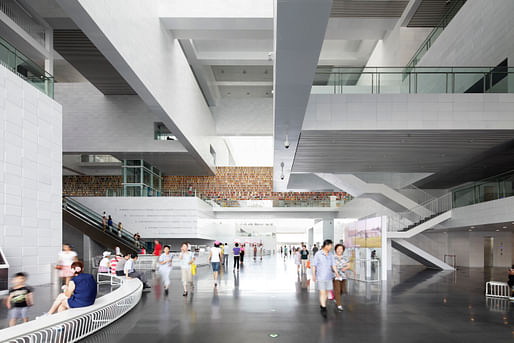
On the eve of the announcement, Archinect asked various AI models to predict the 2024 Pritzker Prize winner. However, no models accurately predicted this year's winner.
As the 53rd laureate, Yamamoto will join the Pritzker's honorary list of winners, which in recent years included David Chipperfield (2023), Francis Kéré (2022), Anne Lacaton and Jean-Philippe Vassal of Lacaton and Vassal (who collectively won the 2021 prize), Yvonne Farrell and Shelley McNamara of Grafton Architects (who collectively won the 2020 prize), Arata Isozaki (2019), Balkrishna Doshi (2018), RCR Arquitectes co-founders Rafael Aranda, Carme Pigem, and Ramon Vilalta (2017), Alejandro Aravena (2016), the late Frei Otto (2015), Shigeru Ban (2014), Toyo Ito (2013), and Wang Shu (2012).
Interesting choice. Riken Yamamoto is world-famous in Japan, but he is not well known in the rest of the world as far as I know. He had a big influence on me in the early aughts when I was in grad school, and I still teach some of his ideas on changing family and community relationships and what that means for built form. It remains relevant.
He very graciously allowed me to interview him for my masters thesis and the discussion still lingers. Mostly for a single statement, that he noticed how architects often make theories, and then build things based on those theories, and incorrectly conclude that their ideas were therefore proven. He was confident that building was not proof of an idea at all. The self-awareness that indicated was important to me at the time, especially coming out of the 90's when architects were so certain about the value and weight of theoretical pursuits. It is a good mindset to have in our time.
All 6 Comments
as predicted, Arevana selects more bleak socialist brutalism (non-American)
Just like his own bleak minimalism
The fuckery.
Wow! Did not see it coming.
Aravena's rise to the highest most echelons is astonishing. His firm's architecture is rather bleak and anachronistic - outside his social housing claim to fame. How he parlayed that celebrity into a permanent position of power is quite a feat.
Interesting choice. Riken Yamamoto is world-famous in Japan, but he is not well known in the rest of the world as far as I know. He had a big influence on me in the early aughts when I was in grad school, and I still teach some of his ideas on changing family and community relationships and what that means for built form. It remains relevant.
He very graciously allowed me to interview him for my masters thesis and the discussion still lingers. Mostly for a single statement, that he noticed how architects often make theories, and then build things based on those theories, and incorrectly conclude that their ideas were therefore proven. He was confident that building was not proof of an idea at all. The self-awareness that indicated was important to me at the time, especially coming out of the 90's when architects were so certain about the value and weight of theoretical pursuits. It is a good mindset to have in our time.
I actually love this choice. As Will mentioned, he is not very famous in the Americas but he is "world famous" in Asia for sure. I had studied a few of his works in undergrad. Good choice, hopefully someone from the Americas wins it next, quite a lot of good stuff going on here too.
As long as it's not Steven Holl or DS&R.
++++++
I wonder if he was selected not just for his work, but also for what it represents and how it might influence others, which I would support. At any rate, it's a relief, a joy, in fact, to read the jury's description, to hear ideas that don't force theory or rest on mindless fluff.
He moved from single-family residences to social housing, such as the Hotakubo project in Kumamoto (1991), with 16 housing clusters arranged around a tree-lined central square. The design drew on traditional Japanese “machiya” (townhouses) and Greek “oikos” (households) — living arrangements that foster collectivism.
https://www.nytimes.com/2024/03/05/arts/design/pritzker-prize-riken-yamamoto-architecture.html
Obviously he's influenced by extensive engagement in modernism, but he has also reached back and across time and cultures. There's a reserve and care that is based on something substantial. I would very much like to hear analysis of how his work reflects his beliefs and ideas.
Oliver Wainright's article offers a good summation as well.
The generation of architects who studied before I was at University of Tokyo were lucky to work with Fumihiko Maki and Hiroshi Hara, both very active in learning through observation of the world. The mythology of that time still pervaded the school when I was there (and may still persist under the powerful shadow of the Kengo Kuma powered engine of today).
The upshot of the narrative was that Hiroshi Hara traveled the world to see how people lived collectively and what that meant for urban form and building typologies. Maki did the same, but with a strong focus on Japanese urbanism. For both of them architecture came from how people lived.
Riken Yamamoto was working with Hara and took those lessons to heart. He built his career on an examination of the line between public and private and how both realms are accessed. I would argue that Sejima built her career on a similar path, with focus on a more introverted and individualistic way of living in a community. It is all connected in the end....
Block this user
Are you sure you want to block this user and hide all related comments throughout the site?
Archinect
This is your first comment on Archinect. Your comment will be visible once approved.